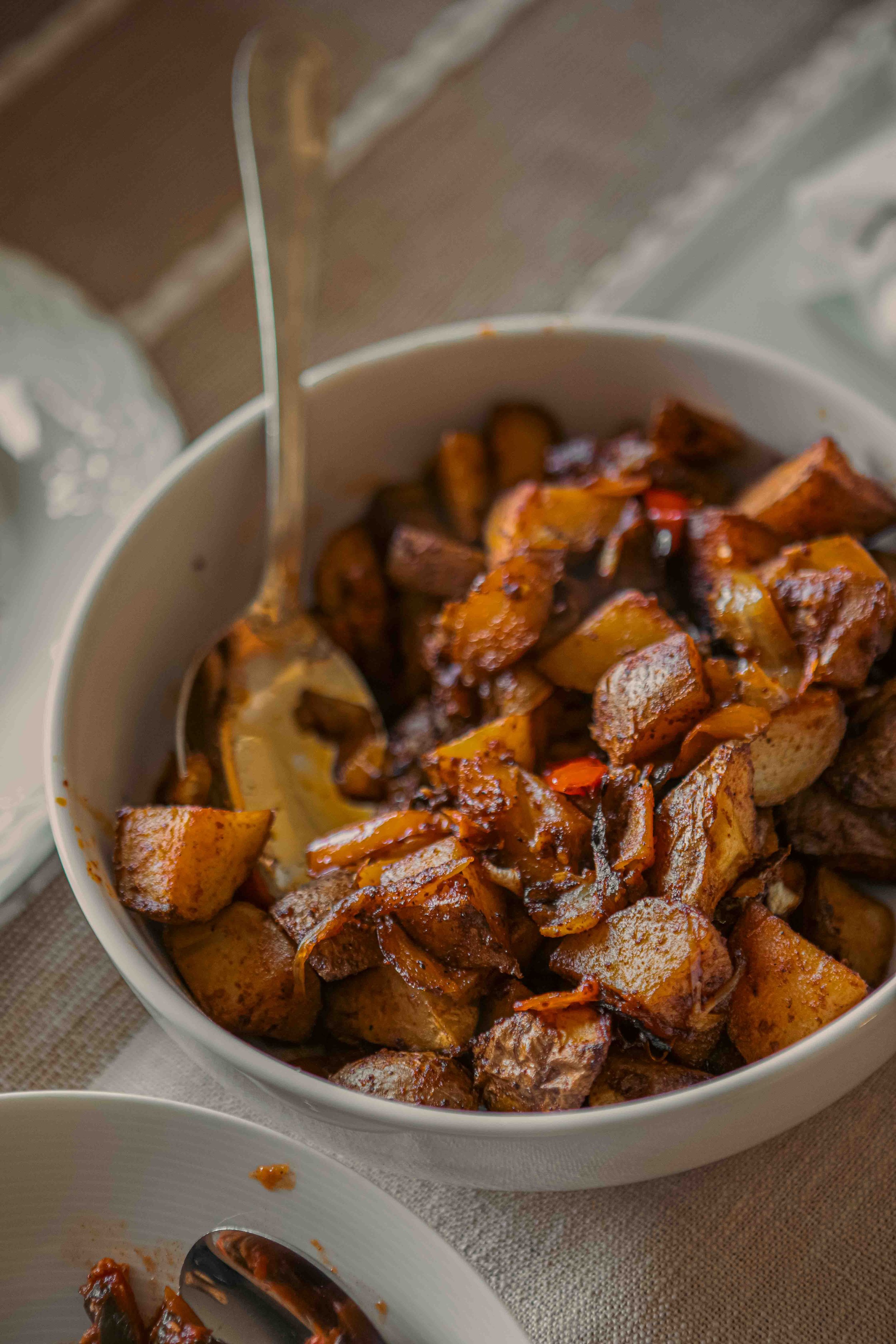Brujas & Breakfast: The Best Potatoes in the World
I call my friends brus. It’s short for brujas, and it's a term of endearment, one that's become a soft chant between sisters. I believe all women are conjurers. Somehow, in the wild magic of life, we’re able to 3D print entire human beings who walk this Earth, carrying our mitochondrial memory long after we’ve returned to dust. That’s not just magic—it’s lineage.
But I digress.
When I have the distinguished honor of sitting down to eat with a friend, it’s always something sacred to me—mostly because I’m the one who’s usually doing the cooking. That’s not a complaint. Cooking is one of my love languages. I’m addicted to the alchemy of feeding people. I love the part where I surprise someone with a flavor and smirk, “I’m a culinary school dropout.” It’s playful, sure—but it’s also spiritual. Cooking for people, for me, is like making love in the fourth dimension. It’s connection beyond words.
And so, when I am the guest at someone else’s table—when I get to sit back and receive that kind of energy—it becomes a moment. I can taste their thoughtfulness. Their time. Their intention. I can feel how something simple was made special just because I was there.
One memory lives especially close to my heart. It happened just before my trip to Mexico, while I was visiting one of my best friends in Arizona. We had been living like nomads for months, exhausted and untethered. But that night, finally, we slept somewhere that felt like home—because this particular bruja, mi Luz, is sister-folk in every way.
The next morning, I woke up to the unmistakable smell of potatoes.
And if you know me, you know potatoes are my favorite fruit, vegetable, meat, and salad. Potatoes are their own food group in my life. I also caught a whiff of something acidic—tomatoes.
I peeled myself off the air mattress and walked down the hallway, still wiping sleep from my eyes, trying to guess what she was making. She was at the stove, working on Potatoes O’Brien and shakshuka.
She turned around, looked at me, and said, “Morning, bru.”
Just like that. Morning, bru.
I think we hugged. Moments later, she was pulling toast off the burner and plating breakfast for me.
I felt a flicker of guilt. It’s usually me making the plates. But that guilt dissolved the second I took a bite of those potatoes—savory, tender, kissed by sweet red peppers and onions. I dipped one into the shakshuka sauce and let out an audible “oh my god,” though it came out more like “murmurgah,” because I was mid-bliss. They were the best potatoes I’d ever had.
To which my friend responded, “Get out.”
But I wasn’t lying. They were.
For context: I’m usually the chef in our dynamic—not out of obligation, but because I love to host. She’s a more-than-willing recipient, and she knows I’m a praise whore and delights in feeding that, too.
In that moment, I realized just how rare it was to taste her cooking. Not because she isn't capable—she makes amazing sopapillas and more—but because I was always set on being the Michelin-star moment. And she always let me.
But that morning, at her table, eating that plate of shakshuka, toast, and the best potatoes in the world, something shifted. I hadn’t realized how starved I’d been—not just for food, but for nourishment. Road life had meant takeout and food that filled me but didn’t feed me. Nothing had that intangible something.
This did.
I could taste more than just seasoning—I could taste her wanting to cook for me. I could feel her love in it. And that was what I’d been missing on the road, in all my solo meal-making. I missed being fed by someone who was excited to feed me.
Like I said before, I usually enjoy cooking. But I’m usually the cook. I'd love to chalk it up to being a mom, but the truth is—I’m a control freak. My kitchen is my ship. And I’ve been known to scare off the crew (aka my husband and kids). Though my son, who is becoming a masterful chef in his own right, has figured out how to take the helm more often these days.
Still, that morning reminded me: sometimes we have to let others serve us, too. We can’t always be at the helm. When we insist on being in control, we rob others of their chance to shine—and we rob ourselves of the magic of seeing them in the light they’ve always seen us in.
Sometimes, we’re meant to sit at someone else’s table—so we can finally taste the best potatoes in the world.



